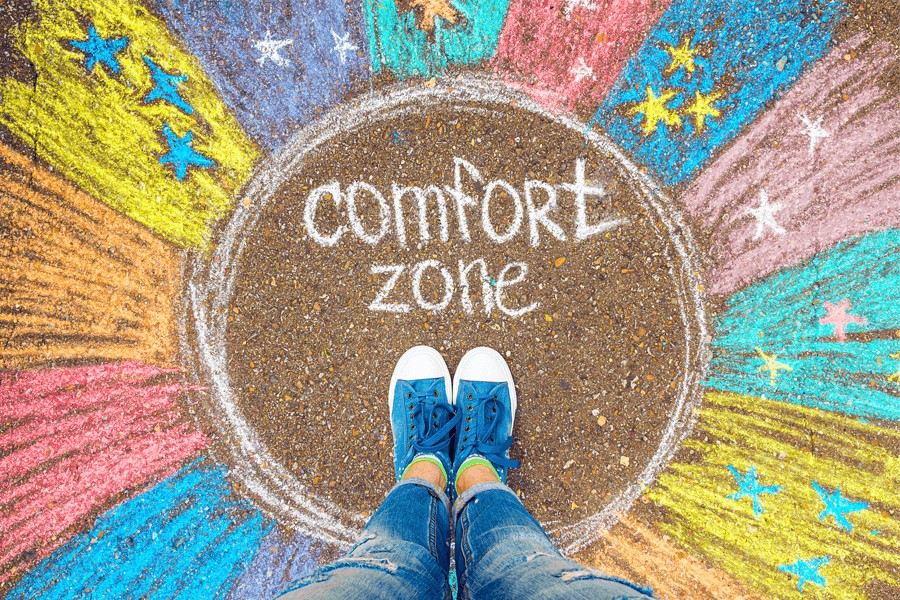We’ve all been there. Maybe you’re at the grocery store, and the cashier is uncharacteristically curt. Or perhaps a close friend isn’t returning your calls like they used to, or a family member seems distant and uninterested. It’s easy to let these moments burrow under your skin, to start thinking, “Did I do something wrong?” But here’s the truth: most of the time, it’s not about you at all.
Learning how to stop taking things personally can be one of the most freeing skills you’ll ever develop. Below, we’ll dive into why we tend to personalize situations, and more importantly, how to break free from that cycle so you can live with more peace of mind and resilience.
The Invisible Battles Others Are Facing
Picture this: you’re going through the checkout at the store, and the cashier barely looks at you. Instantly, your mind starts spinning: “Are they upset with me? Was it something I said?” But hold on a second. What if it has nothing to do with you at all?
Think about it. That cashier could be having a rough day. Maybe they’re dealing with some tough personal stuff—family issues, health concerns, financial stress — you name it. Their mood might be a reflection of the challenges they’re battling behind the scenes, not anything you did or said.
This isn’t just limited to interactions with strangers, either. The same goes for a friend who suddenly stops texting back or a family member who’s acting colder than usual. People have their own personal struggles that we can’t always see. So often, their behavior is more about them than it is about you.
Assumptions: The Trap We All Fall Into
One of the quickest ways to take things personally is to start assuming you know why someone is acting a certain way. The problem? In reality, we almost never know the full story unless someone directly tells us. And even then, we often interpret situations through our own filters.
For example, let’s say your friend hasn’t replied to your last few messages. The assumption many of us make is, “They’re upset with me”. We might start replaying past conversations in our heads, searching for what we could’ve done wrong. But in reality, your friend might be swamped with work, dealing with family drama, or just needing a little time to themselves. By jumping to conclusions, you’re putting unnecessary stress on yourself and potentially damaging a relationship over something that wasn’t even about you.
Instead of assuming the worst, what if we approached situations with curiosity instead of judgment? The next time someone’s behavior catches you off guard, try thinking, “I wonder if they’re okay?” This small shift in perspective can make a huge difference in how you react and help you avoid personalizing the situation.
The Driving Analogy: A Lesson in Patience and Perspective
Here’s a scenario we can all relate to: you’re driving, and someone cuts you off. On a good day, you might shrug it off, thinking, “Hey, no big deal — maybe they’re in a rush”. But on a bad day, even the smallest traffic mishap can send you into a spiral of frustration: “How dare they? Don’t they see me here?” What’s the difference? Your own state of mind.
This driving analogy is a perfect example of how much our internal world shapes our reactions. When we’re feeling calm and content, we’re more likely to give others the benefit of the doubt. But when we’re stressed, tired, or dealing with our own frustrations, we’re quicker to take things personally — even when it’s something as impersonal as a missed turn signal.
The key takeaway here is this: your mood influences how you perceive others’ actions. If you’re having a bad day, you’re more likely to view someone else’s behavior as a personal slight. But just as you wouldn’t want others to judge you on your worst day, it’s important to give others the same grace. Sometimes, people are just going through their own tough moments, and their behavior has nothing to do with you.
How to Build Empathy and Compassion
So, how do you stop taking things personally when someone is acting out of character — maybe they’re being distant, rude, or just plain cold? The answer lies in empathy and compassion.
Instead of reacting with frustration or hurt, try to put yourself in their shoes. Ask yourself: “What might they be going through right now?” This doesn’t mean you should excuse poor behavior, but it does mean recognizing that everyone has their bad days. People aren’t always at their best, and they might be dealing with things you know nothing about.
An easy way to practice empathy is to flip the script. If the roles were reversed, how would you want someone to respond to you? Would you want them to take your bad mood personally, or would you prefer they give you some space and understanding?
By responding to others with empathy, you not only protect your own peace, but you also create more meaningful, compassionate connections with those around you.
Protecting Your Own Peace
Let’s face it — learning not to take things personally isn’t just about understanding others. It’s also about safeguarding your own mental and emotional well-being. When you stop internalizing others’ actions, you free yourself from a lot of unnecessary stress and anxiety.
This doesn’t mean you should become indifferent or stop caring about how people treat you. It’s more about developing a healthy detachment — a mindset where you can remain compassionate and understanding without letting other people’s moods dictate how you feel about yourself.
Protecting your peace means recognizing when someone’s behavior is about them, not you. It’s about setting emotional boundaries and not letting someone else’s bad day ruin your own.
Seeing the Bigger Picture
Life is complicated, and everyone has their own unique set of challenges. The cashier who seemed rude? They might be dealing with a personal crisis. Your friend who hasn’t returned your calls? They could be drowning in work or stress. That family member who seemed distant during dinner? They could be preoccupied with their own concerns.
The point is: you rarely know what’s going on in someone else’s life. So, when someone acts in a way that feels off or hurtful, take a moment to step back and consider the bigger picture. Their behavior might have absolutely nothing to do with you.
Breaking the Cycle of Assumptions
It’s human nature to try to make sense of other people’s behavior. But sometimes, our brain fills in the gaps with worst-case scenarios. “What if they’re mad at me? What if I did something wrong?” Sound familiar?
But here’s the thing: more often than not, those assumptions are completely off-base. And the more you let yourself spiral into these thoughts, the more stress you create for yourself. Instead of jumping to conclusions, try practicing a little mindfulness. When someone’s behavior feels personal, take a breath and remind yourself, “I don’t know what’s going on with them right now, and that’s okay”.
By letting go of the need to figure out exactly why someone is acting a certain way, you allow yourself to release unnecessary stress and move forward with a clearer, calmer mind.
Cultivating Patience and Understanding
It’s all too easy to let paranoia or self-doubt take over, especially when you’re already feeling stressed or anxious. But one of the best ways to stop taking things personally is to cultivate patience and understanding—not just for others, but for yourself as well.
When someone’s behavior seems off, take a step back and remember: they’re likely dealing with their own stuff. Try to approach the situation with compassion instead of jumping to conclusions. When you can view others with empathy and patience, it not only helps you navigate tricky situations, but it also reduces your own stress in the process.
Real-Life Strategies to Stop Taking Things Personally
So, how do you put all of this into practice? Here are some real-life strategies you can use to stop taking things personally and protect your own peace.
1. Pause Before Reacting
When someone’s behavior feels hurtful, take a moment to pause before reacting. Instead of immediately assuming the worst, give yourself some time to cool down and reflect. Sometimes, just taking a step back can help you realize that their actions have nothing to do with you.
2. Ask, Don’t Assume
If you’re genuinely unsure about someone’s behavior, it’s okay to ask them what’s going on. A simple, non-confrontational question like, “Hey, is everything okay?” can open the door to a more honest conversation. Just remember to approach the situation with curiosity rather than judgment.
3. Practice Self-Compassion
When you find yourself internalizing others’ actions, it’s important to practice self-compassion. Remind yourself that you are worthy and valuable, regardless of how others behave. Just because someone is having a bad day doesn’t mean it’s a reflection of you.
4. Focus on What You Can Control
You can’t control how others act, but you can control how you respond. When someone’s behavior feels personal, shift your focus to what you can control — your own reactions, thoughts, and emotions. By taking ownership of your response, you empower yourself to move forward in a positive direction.
5. Remind Yourself of the Bigger Picture
When someone’s behavior catches you off guard, take a moment to remind yourself of the bigger picture. People are complex, and their actions are often influenced by things you can’t see. By keeping this in mind, you can stop personalizing their behavior and approach the situation with more empathy.
Final Thoughts
At the end of the day, learning not to take things personally is about recognizing that other people’s behavior is often more about them than it is about you. Everyone is fighting their own battles, and sometimes their actions are just a reflection of what they’re going through.
By avoiding assumptions, practicing empathy, and protecting your own peace, you can navigate life’s tricky moments without letting paranoia or self-doubt take over. The next time you catch yourself wondering why someone is acting a certain way, take a deep breath and remind yourself: “It’s not me, it’s you” — and that’s perfectly okay.






